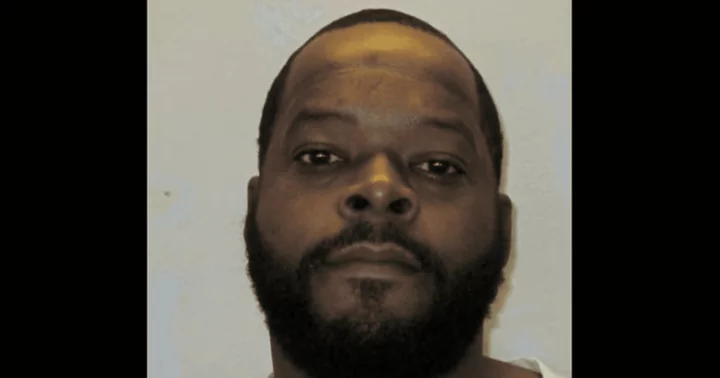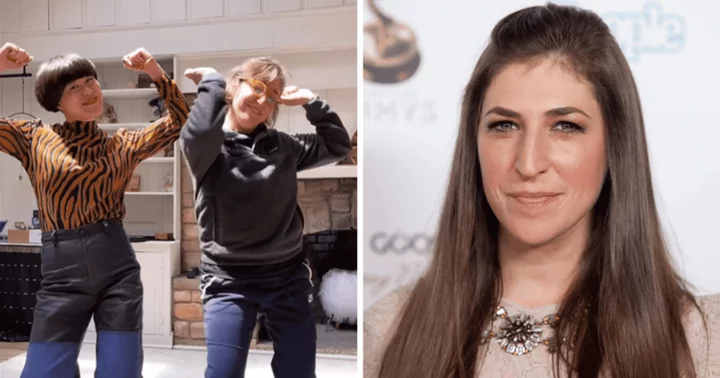BIRMINGHAM, ALABAMA: The state of Alabama is seeking to execute Toforest Johnson despite an outcry from prosecutors, investigators, and jury, who contend that he may not have committed the crime for which he was convicted.
Johnson, 49, was sentenced to death in 1998 for the execution-style shooting of William Hardy, a deputy sheriff for Jefferson County, who was shot twice in the back of the head in 1995 while serving as an off-duty security guard at a hotel.
Just a few hours after Hardy’s body was discovered in the hotel, Johnson was arrested with four other black men.
Three were released after initial interrogation but officials kept Johnson and co-defendant Adragus Ford in custody despite having no witnesses or forensic evidence to tie them to the murder.
With little more to go on, officials offered a $5,000 award for information, which resulted in a rush of tips from the public.
How was Toforest Johnson found guilty of William Hardy’s murder?
After the reward announcement, the vital tip that landed Johnson behind bars came from a 15-year-old girl, who eventually admitted to making up hundreds of lies.
This girl’s “mother contacted police and said she had information about the murder, then immediately hired a lawyer trying to pursue the reward money," said Beth Shelburne, an investigator who has covered Johnson's case for over three years.
Shelburne told Daily Mail that once the 15-year-old girl's testimony was disproved, detectives went to another witness, a so-called earwitness, a mother whose teenage daughter had assisted her boyfriend in making three-way conversations from the jail without using up his allotted quarters.
The mother claimed to have overheard Johnson confessing to the crime during one of these conversations. This earwitness "became the star witness - even though this was the only evidence connecting Toforest to the murder," Shelburne said.
The woman who testified against Johnson admitted to having never met him or heard his voice before the phone call.
Shelburne said the person Toforest was calling told her that "he said none of the things that she testified to."
The investigator added that the woman first told investigators a light version of the phone call, but over the course of many trials, it intensified and evolved, and the woman eventually testified to gory details of the supposed confession.
As a result of Toforest's low income and deep-south upbringing, the state provided him with a lawyer since he couldn't afford one.
"That is appallingly low," Shelbourne said, adding, "In contrast, Toforest's co-defendant Adragus Ford's family were able to hire one of the top criminal defense attorneys in the southeast... and Adragus was acquitted."
For the same crime, the two were granted separate trials, and the prosecution's arguments in each instance contrasted starkly with each other. Eventually, Ford was acquitted, and Johnson's first trial resulted in a hung jury.
Why do authorities believe Toforest Johnson is innocent?
Johnson has since not seen freedom despite the defense presenting 10 different witnesses who testified that he was partying in a club on the other side of the city at the time of Hardy's shooting.
Although he denies recalling the accusations against him, the eavesdropper's evidence was sufficient for the prosecution to get not only a guilty judgment but also a conviction for the death penalty.
Nearly 19 years later, documents that were reportedly "misfiled" showed the so-called "earwitness" received $5,000 for testifying in court, information that was never made known to the jury.
"Was my dad's life worth a $5,000 cheque?" Johnson’s heartbroken daughter Shanaye Poole lamented.
"Clearly, she couldn't have been considering that this person was a son, he's a father, now he's a grandfather, he was a brother, and he had all that taken away from him," she added.
Another aspect of the trial that has raised questions about the conviction was the prosecution's apparent determination to get a guilty plea.
They arrested four other black men and one black girl for crimes connected to Hardy's murder while putting up different theories about who shot Hardy in each instance.
At trial, the state alleged that each of the men was the only killer because forensic evidence proved there was only one assailant.
Notably, an Alabama death sentence conviction may only be reversed by the state's attorney general, who is still supporting the man's execution.
However, Bill Baxley, a former conservative Attorney General of the state, is one of the loudest critics condemning the scheduled execution.
Baxley says the case landed on his radar when his son, an attorney, asked him to review it.
Although initially skeptical—especially given the prevalence of declarations of innocence among death row inmates—Baxley claims that after carefully reading the court records, he was astounded.
"I couldn't believe what I was reading," he told the Associated Press. "I was just dumbfounded that, in Alabama, a case as weak as that would have gotten to the jury, much less a death sentence... It was just unconscionable for this to stand."
Baxley's calls for a retrial come as District Attorney Carr has urged officials to grant Johnson a review. Juror Monique Hicks also voiced Johnson’s innocence saying, "I think we convicted an innocent man. I feel grief deep in my soul."
The distressing sentiment was echoed by fellow juror Jay Crane, who admitted: "They don't have the right person in prison."
Despite languishing on death row for decades, Johnson's loved ones said he has always remained "hopeful", with his landmark case set to be heard by the US Supreme Court on October 2.









